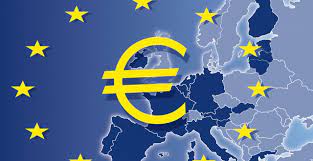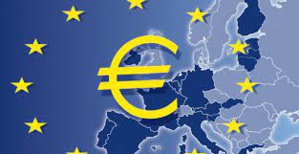According to a survey released on Tuesday, business activity in the eurozone was down for the second consecutive month in August because of the cost of living crisis which forced customers to cut back on spending and supply disruptions continued to negatively impact manufacturers.
The global economy is increasingly vulnerable to recession as a result of Russia's invasion of Ukraine and China's strict COVID-19 lockdowns, which have further harmed supply lines that have not yet recovered from the pandemic.
Meanwhile, consumers are experiencing the highest inflation in a generation, forcing central banks to tighten monetary policy aggressively just as economies require assistance.
The flash eurozone Composite Purchasing Managers' Index (PMI) from S&P Global dropped to 49.2 in August compared to 49.9 in July, which was just higher than the median forecast that emerged from a a Reuters poll predicting a larger drop to 49.0.
A reading of less than 50 indicates contraction, and August's preliminary estimate was the lowest since February 2021.
"The continued decline in the PMIs in August suggests that a recession in the winter half-year is increasingly likely," said Christoph Weil at Commerzbank.
"Russia is supplying only a limited amount of gas, high inflation is tearing deep holes in the coffers of private households, companies are facing massive uncertainties - the economic outlook for the economy in the euro zone is bleak."
A separate PMI survey revealed that a downturn in Germany, Europe's biggest economy, exacerbated in August, as businesses witnessed demand blunted by a mixture of high inflation, rising interest rates, and economic instability.
France's economy shrank for the first time in a year and a half, according to the PMI, because of a weaker demand and price inflation weighed on businesses.
"Problems are mounting for the French and German economies. Demand has fallen due to the toxic combination of rampant inflation, rising interest rates and energy security worries," said Susannah Streeter at Hargreaves Lansdown.
Outside the European Union, growth of the private sector in the United Kingdom slowed to a halt as factory output fell and the larger services sector expanded only modestly, indicating a recession was on the way.
Overall demand in the eurozone fell for the second month in a row, indicating that there was little hope of a quick recovery. The new business index was 47.7, just above July's 47.6.
A PMI covering the bloc's dominant services industry fell to 50.2 from 51.2, just above breakeven and lower than the 50.5 predicted in a Reuters poll.
Although service firms increased their charges at a slower pace this month, the output prices index remained significantly higher than the long-term average. The index of input prices fell as well.
"But they are still very high, and with European gas prices surging and measures of domestic price pressures strong, we expect inflation to remain very high," said Jack Allen-Reynolds at Capital Economics.
"All things considered, the PMI surveys are consistent with our view the European Central Bank will have to press ahead with monetary tightening even as the economy falls into recession."
The ECB raised interest rates more than expected last month, and a Reuters poll predicts it will keep tightening.
This month, manufacturing activity in the EU fell again. The factory PMI fell to 49.7 from 49.8, its lowest level since June 2020, while an output index that feeds into the composite PMI was 46.5, down from 46.3 in July.
According to the Reuters poll, the headline number will be 49.0.
This drop in activity occurred despite factories completing old orders and building a surplus of finished products at the fastest rate since the survey began in mid-1997, as they struggled to sell in a declining demand environment.
(Source:www.reuters.com)
The global economy is increasingly vulnerable to recession as a result of Russia's invasion of Ukraine and China's strict COVID-19 lockdowns, which have further harmed supply lines that have not yet recovered from the pandemic.
Meanwhile, consumers are experiencing the highest inflation in a generation, forcing central banks to tighten monetary policy aggressively just as economies require assistance.
The flash eurozone Composite Purchasing Managers' Index (PMI) from S&P Global dropped to 49.2 in August compared to 49.9 in July, which was just higher than the median forecast that emerged from a a Reuters poll predicting a larger drop to 49.0.
A reading of less than 50 indicates contraction, and August's preliminary estimate was the lowest since February 2021.
"The continued decline in the PMIs in August suggests that a recession in the winter half-year is increasingly likely," said Christoph Weil at Commerzbank.
"Russia is supplying only a limited amount of gas, high inflation is tearing deep holes in the coffers of private households, companies are facing massive uncertainties - the economic outlook for the economy in the euro zone is bleak."
A separate PMI survey revealed that a downturn in Germany, Europe's biggest economy, exacerbated in August, as businesses witnessed demand blunted by a mixture of high inflation, rising interest rates, and economic instability.
France's economy shrank for the first time in a year and a half, according to the PMI, because of a weaker demand and price inflation weighed on businesses.
"Problems are mounting for the French and German economies. Demand has fallen due to the toxic combination of rampant inflation, rising interest rates and energy security worries," said Susannah Streeter at Hargreaves Lansdown.
Outside the European Union, growth of the private sector in the United Kingdom slowed to a halt as factory output fell and the larger services sector expanded only modestly, indicating a recession was on the way.
Overall demand in the eurozone fell for the second month in a row, indicating that there was little hope of a quick recovery. The new business index was 47.7, just above July's 47.6.
A PMI covering the bloc's dominant services industry fell to 50.2 from 51.2, just above breakeven and lower than the 50.5 predicted in a Reuters poll.
Although service firms increased their charges at a slower pace this month, the output prices index remained significantly higher than the long-term average. The index of input prices fell as well.
"But they are still very high, and with European gas prices surging and measures of domestic price pressures strong, we expect inflation to remain very high," said Jack Allen-Reynolds at Capital Economics.
"All things considered, the PMI surveys are consistent with our view the European Central Bank will have to press ahead with monetary tightening even as the economy falls into recession."
The ECB raised interest rates more than expected last month, and a Reuters poll predicts it will keep tightening.
This month, manufacturing activity in the EU fell again. The factory PMI fell to 49.7 from 49.8, its lowest level since June 2020, while an output index that feeds into the composite PMI was 46.5, down from 46.3 in July.
According to the Reuters poll, the headline number will be 49.0.
This drop in activity occurred despite factories completing old orders and building a surplus of finished products at the fastest rate since the survey began in mid-1997, as they struggled to sell in a declining demand environment.
(Source:www.reuters.com)






